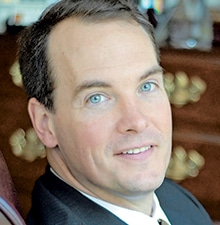
Most people think of life insurance when they think about beneficiaries, however, retirement and investment accounts require an assignment of a beneficiary or a Transfer on Death (TOD) agreement to designate how your assets should be distributed for each account. This method of transferring assets is the most powerful, as it supersedes the instructions in a will and may facilitate a faster transfer of assets. This may be very important in some situations.
A contingent beneficiary is a back-up or secondary beneficiary who receives the assets/money when the primary beneficiary has passed away before the account owner dies. If you do not have beneficiaries designated, please make sure you have a valid will in place to provide direction for your estate and to prevent the need for a court to decide who receives your assets.
It is important to note that a will as beneficiary is not advised and is often not accepted. If you do not have beneficiaries, then in some cases a surviving spouse will become the default and in others, the assets will be paid to your estate. When assets are paid to an estate, a will becomes very important in specifying how the money is to be distributed. In the of a valid will, a court will decide where your assets go.
Minor children generally cannot collect as beneficiaries until they are 18 in most states. If you need to provide for a minor child, you will need to assign a custodian or establish a trust to manage the money until the child turns 18. You should also probably establish a desired guardian for the child. If you fail to do so, then again a court will likely be making decisions, and parties may end up fighting over what is best for the children in the absence of your guidance.
It is important to review your beneficiaries regularly, when your life change; such as a marriage, a divorce, the birth or death of a child/grandchild, or the death of a spouse. Beneficiary designations can be much more complex than most people realize because of the many curve balls life may throw us at any given time. It is often difficult for us to think about all the, but something you should give careful consideration to when beneficiary designations.
Some of those difficult “curveball” questions to consider:
•My beneficiary is my spouse, but what happens if my spouse pre-deceases me and I have no will?
•I am leaving my assets split equally amongst my three adult children. If one of my children pre-deceases me, will my assets then be divided between only my two children? Will my grandchildren from my deceased child end up from any inheritance?
•My husband and I have “his, hers and ours” children due to prior marriages. How can we ensure all of our children will be taken care of until they are adults if one of us dies?
•I am leaving my assets to my only child, who is in an unstable marriage with children. If I die, will my child’s spouse then potentially receive, through divorce, half of the assets I intended for my child and grandchildren?
•How can I ensure my minor will be provided for until they are adults in any given situation, upon my death?
•Will my children be mature and responsible enough at age 18 or even at points thereafter to manage an inheritance, or will my lifetime of accumulated assets be spent or to enable bad behaviors following my death? What can I do to protect my legacy and still benefit my heirs?
•Can I use my assets to incentivize certain milestones or goals I believe are important for my children to achieve even after my death?
These are just a few of the many challenging and sometimes uncomfortable you may need to be asking when thinking about to whom and how your beneficiaries should be designated. This is also why we strongly recommend everyone spend some time on estate, and on working with their heirs to do some “ planning” where that may make sense.
If you need guidance on these types of or wish to your current beneficiary, please feel free to our office at 770.931.1414 to schedule a no-cost, no- meeting to discuss yours. We also strongly suggest you seek the advice of an estate planning attorney to create a valid will and/or and guide you through the options available to solve for these types of potential situations.
For useful information on these and other important financial and planning topics please visit our website at www.rogersgreen. always, we are here to help.
Roger S. Green is a Registered Representative providing securities and advisory services through Cetera Advisors LLC, a broker/dealer and a Registered Investment Advisor, mem-ber FINRA/SIPC. Roger’s office is located at 3700 Crestwood Parkway Duluth, GA 30096.

